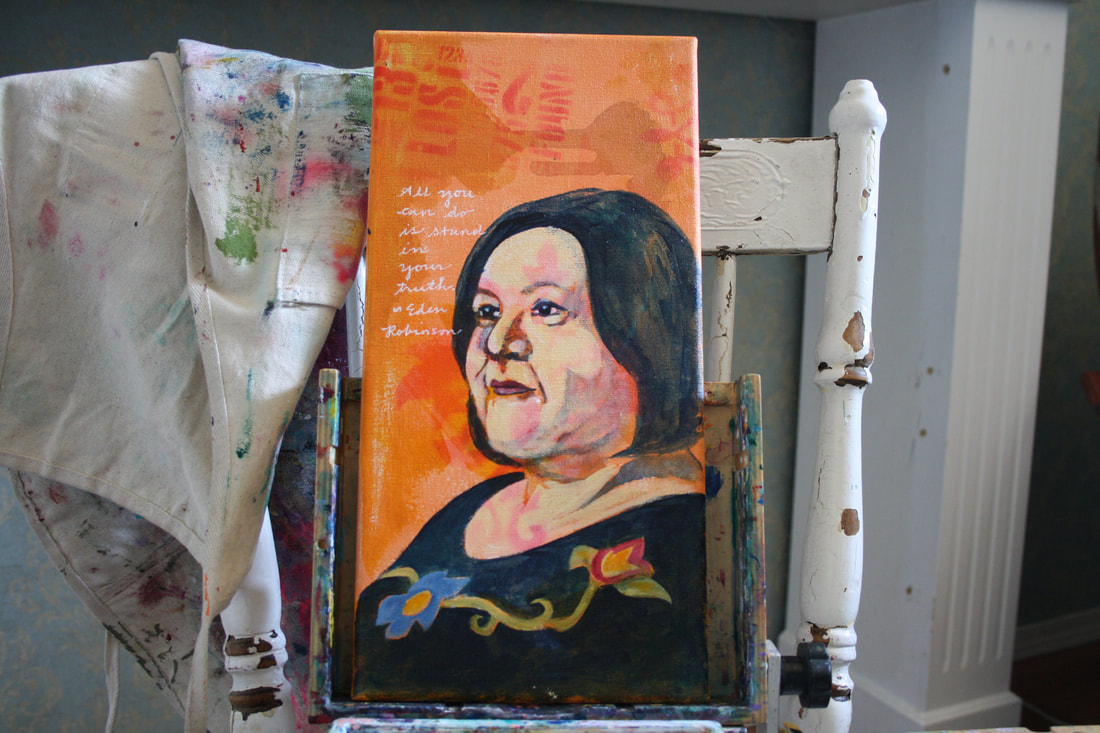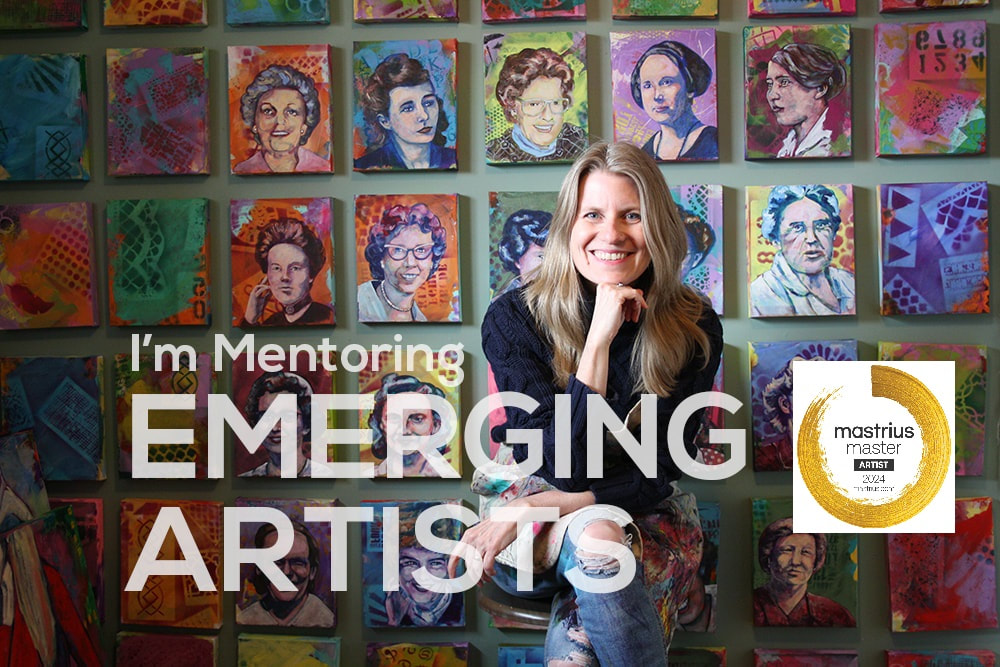All you can do is stand in your truth. Eden Robinson, Haisla writer (born 19 January 1968 in Kitimaat, BC). A well-known Indigenous writer, Eden Robinson has won national and international acclaim for her dark, gothic fiction. Robinson counts Stephen King and Edgar Allan Poe among her literary influences.
Early Life and EducationEden Robinson was born in Kitimat General Hospital and raised in Kitamaat Village, home to members of the Haisla Nation. Her mother, who is Heiltsuk, met her father, a Haisla man, at a fishing stop in Bella Bella, the traditional home of the Heiltsuk First Nation. The two raised their family, including Robinson and her older brother and younger sister (who went on to become a television news anchor at the CBC), in Haisla. Robinson earned a Bachelor of Fine Arts at the University of Victoria. Her first published story, “Traplines” (1991), was published in the literary magazine Prism International while she was in her last year of university. After graduating in 1992, Robinson moved to Vancouver with ambitions to become a writer. She worked a number of odds jobs — janitor, napkin ironer, dry cleaner, mailroom clerk — that allowed her to dedicate time to her literary craft. Encouraged by the early success of “Traplines,” she enrolled — and eventually graduated from — the prestigious master’s program in creative writing at the University of British Columbia. Writing CareerEden Robinson’s first book, Traplines (1996), is a collection of three short stories and a novella (a short novel). Robinson’s young narrators recount haunting tales of their disturbing relationships with sociopaths and psychopaths. The collection won Britain’s Winifred Holtby Memorial Prize for the best regional work by a Commonwealth writer. Monkey Beach (2000), Robinson’s first novel, is set in Kitamaat. The novel follows a teenage girl’s search for answers to and understanding of her younger brother’s disappearance at sea. The book is both a mystery and a spiritual journey, combining contemporary realism with Haisla mysticism (see Indigenous Peoples: Religion and Spirituality). Monkey Beach was praised nationally and internationally as the work of a powerful and original new literary voice; it was shortlisted for the Giller Prize and the Governor General’s Literary Award, and won the Ethel Wilson Fiction Prize. Eden Robinson returned to the characters and urban terrain of her novella “Contact Sports,” from Traplines, in her 2006 novel Blood Sports. Set five years after the original story, the protagonist Tom is still struggling to make a life for himself and his young family. In addition to the socio-economic challenges of Vancouver’s Downtown Eastside, Tom once again faces peril from his sociopathic cousin Jeremy, who takes sadistic pleasure in ruining his life. Reviewers praised Robinson’s unflinching and compelling exploration of the darkest impulses of humanity. In 2011, Robinson released The Sasquatch at Home: Traditional Protocols & Modern Storytelling (see Sasquatch). Part of the Henry Kreisel Memorial Lecture Series, The Sasquatch at Home provides insight into Robinson’s culture, early life and family. The University of Alberta Press described the stories in the book as “delightful, poignant” and “sometimes quirky.” Robinson’s latest novel, Son of A Trickster (2017), the first instalment of a planned trilogy, is a darkly comic coming of age story that follows the life of 16-year-old Jared Martin as he navigates his way through the violent, dysfunctional world of small-town British Columbia. The book was praised in the Globe and Mail for the “inordinate amount of glee” it takes “in cramming together traditional narratives with contemporary tales of violence and survival.” It was shortlisted for the 2017 Giller Prize. ~ Jules Lewis Comments are closed.
|
|




